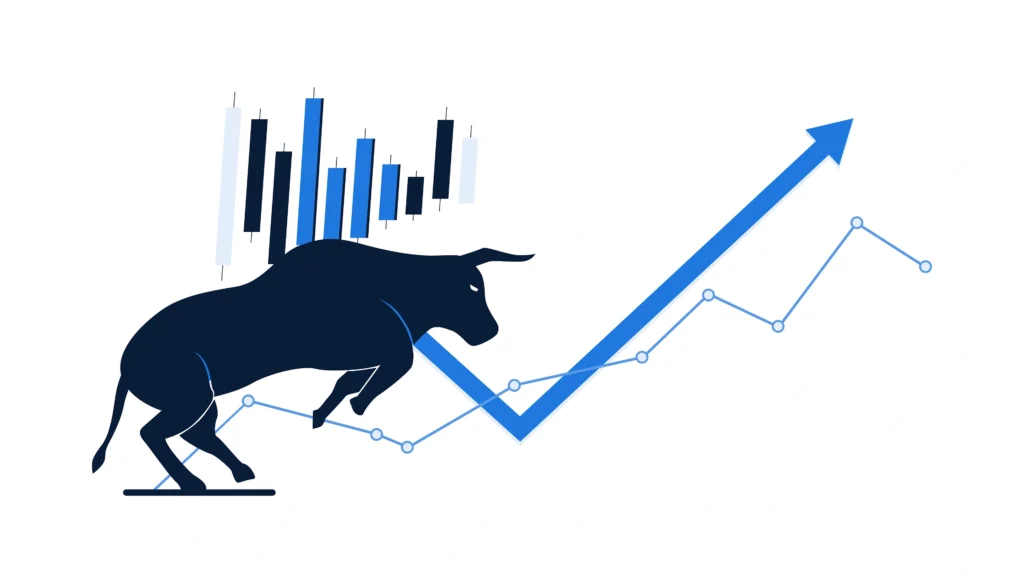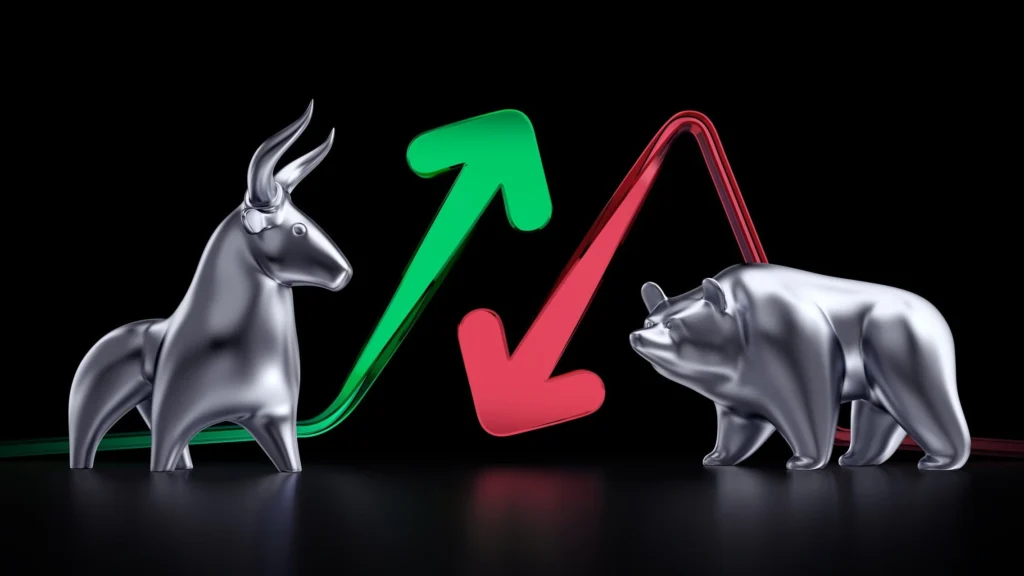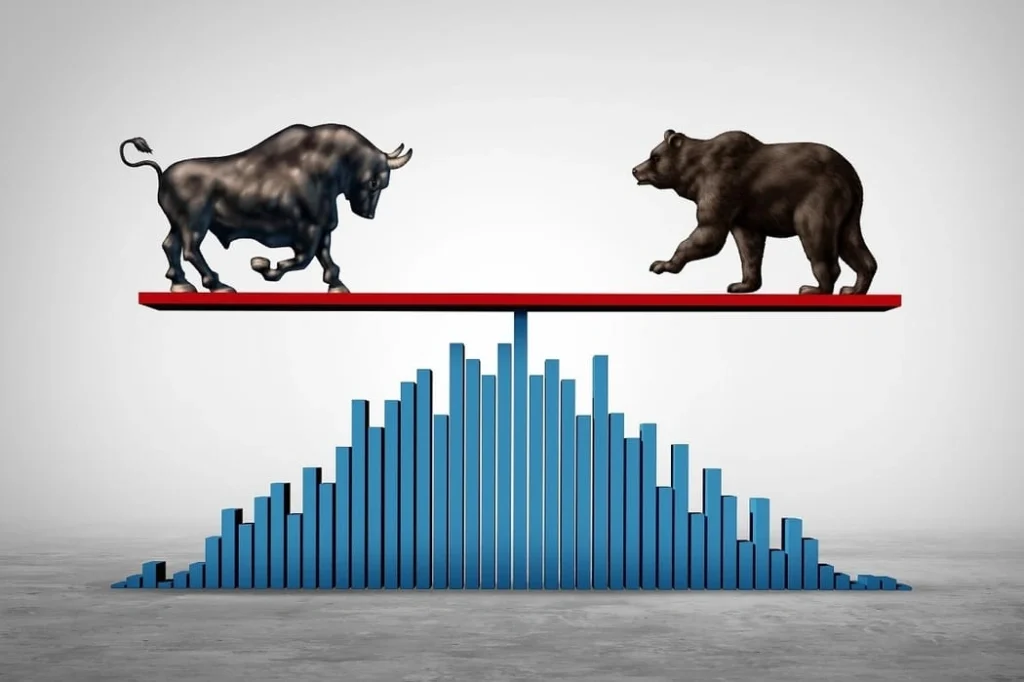Let’s Start with the Basics: Why Markets Go Up and Down
Bull vs bear markets: If you’ve ever watched the news or scrolled through finance headlines, you’ve probably seen phrases like “bull market is booming” or “we’re heading into a bear market.” But what do those terms really mean?
Here’s the simple version: a bull market happens when prices are going up and people feel good about the economy. A bear market is when prices are falling and people feel more nervous or cautious.
Understanding bull vs bear markets can help you feel more confident about your money—even if you’re not an investor yet. Let’s break it down in plain English.
What Happens in a Bull Market?

A bull market is when the stock market is doing well. Prices are rising, people are investing more, and there’s general excitement about the future. It’s called a “bull” market because bulls charge ahead—just like prices during this time.
Key Signs of a Bull Market:
- Stock prices go up by 20% or more
- People feel positive about the economy
- More folks are willing to take investment risks
- Companies are growing and hiring
Bull markets often happen when the economy is strong—people have jobs, businesses are thriving, and confidence is high.
Understanding Bear Markets: The Opposite Side of the Cycle

A bear market is when the market heads in the other direction. Prices drop—by 20% or more—and investors start getting cautious. People may sell off stocks, and companies might pause hiring or expansion.
It’s called a “bear” market because bears swipe downward with their paws—like prices falling in this market phase.
Signs You’re in a Bear Market:
- Stock prices fall across many industries
- Investors start pulling back their money
- Headlines may mention “recession” fears
- The overall mood is more careful or worried
Bear markets can feel scary, but they’re completely normal. They’ve happened many times in history, and the market has always bounced back.
Bull vs Bear Markets: What’s the Real Difference?

Now let’s put it side by side so you can clearly see how bull vs bear markets compare:
| Feature | Bull Market | Bear Market |
|---|---|---|
| Price Movement | Going up | Going down |
| Investor Mood | Optimistic and bold | Cautious and protective |
| Economy | Usually strong | Often slowing or uncertain |
| Risk-Taking | High | Low |
| Common Strategy | Buy and grow | Sell or hold back |
Each type of market creates different opportunities—and different challenges.
What Causes Bull vs Bear Markets?

Market changes don’t happen randomly. A bull market might start when interest rates are low, jobs are plentiful, and companies are making good profits. People feel confident and start investing more.
A bear market, on the other hand, can be caused by rising inflation, interest rate hikes, global crises, or even fear alone. When people worry, they often sell, and that causes prices to fall even more.
So much of the market is about how people feel—which means emotion plays a big role in both bull and bear markets.
How to Handle Bull vs Bear Markets (Even as a Beginner)

You don’t need to be a financial expert to make smart moves in either market. Here are a few simple tips to help you stay grounded:
In a Bull Market:
- Don’t get carried away. Rising prices are great, but they can’t go up forever.
- Stay focused on your goals. Stick to your plan instead of chasing hype.
- Diversify your investments. Don’t put all your money into one stock or sector.
In a Bear Market:
- Don’t panic-sell. Selling during a dip can lock in losses.
- Keep a long-term mindset. Bear markets usually don’t last forever.
- Look for deals. Good companies often go “on sale” during downturns.
Even doing nothing can be a smart move—especially if you’re investing for the long haul.
Why Should You Care If You’re Not Investing Yet?

You might be thinking, “I don’t own any stocks—so why should this matter to me?” Great question.
Even if you don’t invest directly, market trends can affect your job, your savings account, your 401(k), and even how much things cost at the grocery store. When the market is healthy, the economy tends to follow suit.
So understanding bull vs bear markets helps you make smarter life choices—not just investment decisions.
Final Thoughts: Learn the Pattern, Stay Calm

Markets go up. Markets go down. That’s the cycle—and it’s been happening for decades.
You don’t have to predict the next big move to be successful. What really matters is staying informed, staying calm, and sticking to your long-term plan.
Knowing how bull vs bear markets work gives you the confidence to make good decisions, no matter what the headlines are saying.
Relevent news: Here



